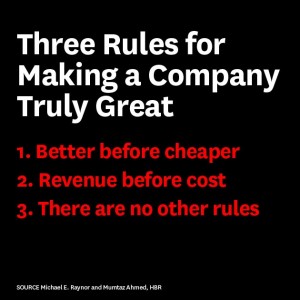JC Penny (JCP) has been making headlines over the past year due to a strategic shift in its pricing model. About a year ago, newly hired CEO, Ron Johnson, announced that JCP will no longer promote sales and offer coupons to its customers. Instead, they would offer everyday low prices. JCP wanted to offer shoppers a no-nonsense way to shop without worrying about whether or not they are getting the best deal possible. Theoretically, that made some sense. From a business owner’s perspective, that makes even more sense. A simple, systematic, uniform pricing model saves labor cost, stabilizes inventory, and allows a method to manage costs/margins much easier. Time and labor is money, so if you’re saving those two resources, you’re going to save money. So how did JCP miss the mark?
A recent NY Times article interviewed Tracie Fobes from Penny Pinchin’ Mom. She epitomizes the fallacy in JCP’s logic.
When, a little over a year ago, J. C. Penney stopped promoting sales and offering coupons and instead made a big deal about its “everyday” low prices, Ms. Fobes stopped shopping there. It wasn’t that she thought the prices were bad, she said. She just wasn’t having any fun… most shoppers, coupon collectors or not, want the thrill of getting a great deal, even if it’s an illusion. In recent months, Penney recognized that human trait and backtracked on its pricing policy, offering coupons and running weekly sales again”.
JCP grossly underestimated the human aspect of its customers. Humans don’t just buy based on price. We buy based on feelings and emotions. (Ironically, Mr. Johnson was recruited from Apple, a company notorious for selling on perceived value and brand equity, not price) We want to feel like we got a steal. It’s an experience. It’s a great feeling to see a discount on our receipt. It’s the reason grocery store cashiers are now trained to grab a red pen and circle the “club card” discount total on your receipt before you leave. It’s not because you got the best deal available. It’s to give you the proud feeling and emotional elation of realizing you did a great job on your purchase. That’s what we like.
Does the same hold true for online retailers? Would JCP’s strategy work for e-retailers? Online shoppers have fewer barriers to price shop compared to brick-and-mortar shoppers. With a few keystrokes you can compare prices from multiple websites. Due to these low barriers, the assumption is that online retailing is all about price. Traditional shoppers don’t have the luxury of walking or driving to 10 brick-and-mortars for price comparisons. If they want to touch the product before buying, their options are limited, so you don’t need to be the lowest price to earn the sale.
While online retail may be more price sensitive, you need to take a look at yourself and your competitive landscape. Price is important. However, check the ease of navigability on your site. Compare the efficiency of your shopping cart process compared to competitors. If yours is clunky, update it. If it’s ugly, redesign it. Simplify your sitemap. Offer shipping deals. Build a retargeting campaign to stay connected when they shop around. Note a regular price next to “your” price. If your company has a mission or cause (think Tom’s shoes), make it known.
Just remember, people don’t always buy based on the absolute lowest price. Before focusing on how to sell more… focus on understanding why people buy. Tap into their emotions a bit. This may allow you increase sales while, most importantly, maintaining healthier margins.
